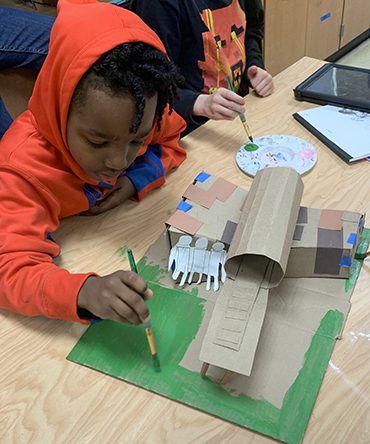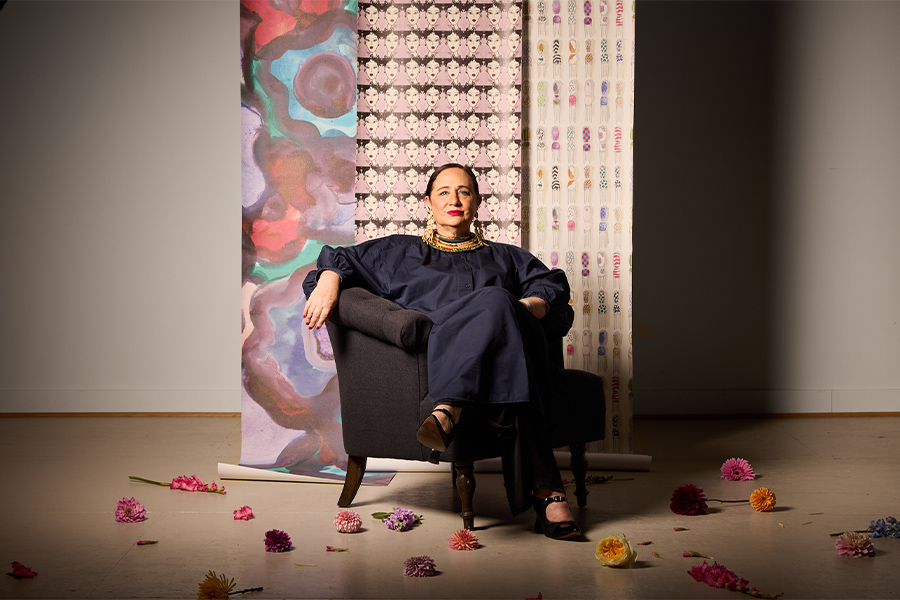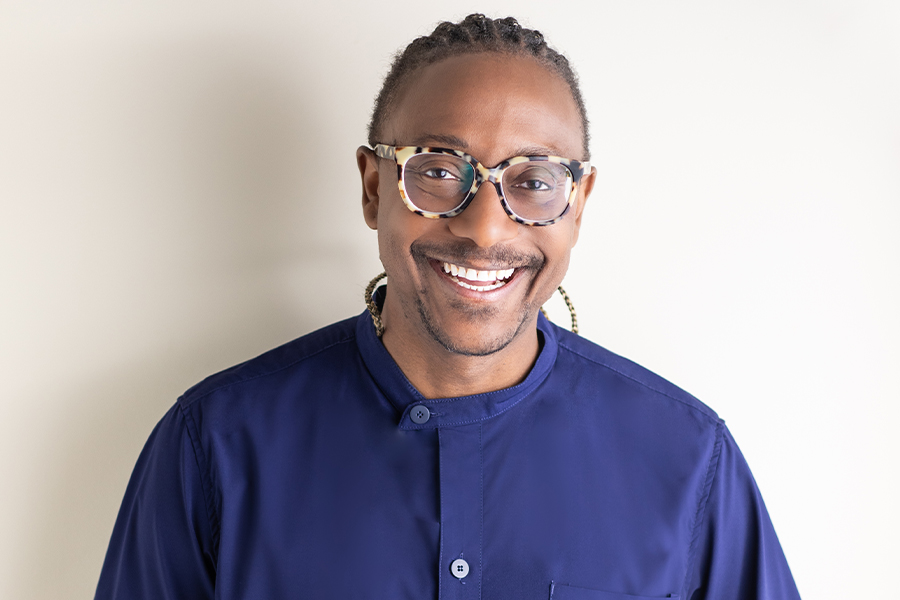Maya Bird-Murphy grew up in Chicago’s Oak Park neighborhood, surrounded by the city’s influential architectural history. After attending a high school architecture camp, she knew she wanted to work in the field. She went to Ball State University in Muncie, Indiana to pursue her degree, but a few years in the working world opened her eyes to the discipline’s lack of diversity. “I was having trouble feeling like I belonged,” she recalls.
That’s when she came up with the idea to offer low-cost workshops for school-aged children to learn about design and skill building in a mobile setting. Centering her Boston Architectural College grad school thesis around the concept, Bird-Murphy launched Mobile Makers Chicago in September 2017 in a retrofitted UPS truck. Recently, she partnered with her alma mater to bring Mobile Makers to Boston, while also opening a brick-and-mortar space in Chicago that Bird-Murphy hopes will be become a stabilizing force in the community. Here, she shares the challenges of launching Mobile Makers, retrofitting an old UPS truck, and what’s next for the nonprofit.
What is Mobile Makers?
I wanted to talk to young people about how design affects us, and I thought, why not put that in a truck and drive around? We want to make it easier for kids on the South and West Sides of Chicago to have opportunities. We’re not necessarily trying to bring people into the architecture field. It’s more about kids caring about their communities and developing some of the skills that will positively impact their environments by going through our design-thinking and problem-solving workshops.

Mobile Makers pop-ups are held in a retrofitted UPS truck
What were the challenges of launching Mobile Makers?
I launched the business in September 2017 right before I graduated. I was doing my master’s online while working fulltime. After I graduated and started doing workshops, people started to understand what the point was. We booked most of our workshops via word of mouth, and 90 percent of our programming before the pandemic was doing workshops in schools.
How did the pandemic change your business model?
The buzzword is pivot. We sent design kits to peoples’ homes so kids had something to do. We started doing community engagement work, which helped us stay afloat. 2020 was the best and worst year. Our programming came to a halt with the pandemic, but at the same time, we grew a ton. We received more donations than ever that year.

Children learn design and skill building during workshops
Tell us about the Mobile Makers van, a retrofitted UPS truck.
The truck is special. Kids light up when they see it. There’s something magical about it. You can tell they’re having a lot of fun and that’s what the truck is about. We got a bunch of press for it. The goal is to have all three things: after school programs in our space, pop-ups with the truck, and workshops in schools.
You also opened a brick-and-mortar Mobile Makers space in Chicago’s Humboldt Park neighborhood.
We’re learning every day about the mental health struggles of young people, and this was a good time to double down on doing something in person. We needed a space where kids feel safe, where they don’t have to think about their worries for a few hours. Over the next five years, I would love to become a consistent presence in the neighborhood.
How do you define social architecture via your workshops?
It’s human-centered design. We don’t often talk about the end user. There’s rarely authentic community engagement. Our workshops are all about giving young people the agency and the power to think that they can make a difference in their built environment. We can make more change in communities without necessarily going down the traditional path or having to go through the normal gatekeepers. It’s also about showing people that small changes make big differences.
How have you changed kids’ perspectives on what good design can do?
The workshops are longer engagements that are week by week. In the summer, it will be every day. We go deep with kids talking about history and gentrification. It’s cool to see what kind of interventions they come up with. We’ve done workshops all over the city in different places. Teens understand the issues that are happening in their communities, and they all have answers to solve the problem. It’s very rewarding.
This is part of an ongoing interview series curated by the Hospitality Diversity Action Council (HDAC).


